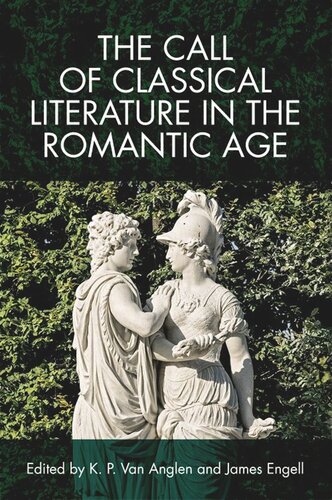

Most ebook files are in PDF format, so you can easily read them using various software such as Foxit Reader or directly on the Google Chrome browser.
Some ebook files are released by publishers in other formats such as .awz, .mobi, .epub, .fb2, etc. You may need to install specific software to read these formats on mobile/PC, such as Calibre.
Please read the tutorial at this link: https://ebookbell.com/faq
We offer FREE conversion to the popular formats you request; however, this may take some time. Therefore, right after payment, please email us, and we will try to provide the service as quickly as possible.
For some exceptional file formats or broken links (if any), please refrain from opening any disputes. Instead, email us first, and we will try to assist within a maximum of 6 hours.
EbookBell Team

4.4
42 reviewsThe Call of Classical Literature in the Romantic Age reveals the extent to which writers now called romantic venerate and use classical texts to transform lyric and narrative poetry, the novel, mythology, politics, and issues of race and slavery, as well as to provide models for their own literary careers and personal lives. On both sides of the Atlantic the classics—including the surprising influence of Hebrew, regarded as a classical language—play a major role in what becomes labeled romanticism only later in the nineteenth century.
The relation between classic and romantic is not one of opposition but subtle interpenetration and mutual transformation. While romantic writers regard what they are doing as new, this attitude in no way prompts them to abjure valuable lessons of genre, expression, and judgment flowing from the classical authors they love. This volume disturbs categories that have become too settled.
Key Features